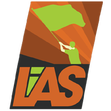What is a Badge?
A ’badge’ is a symbol or indicator of an accomplishment, skill, quality or interest. From the Boy and Girl Scouts, to PADI diving instruction, to the more recently popular geo-location game Foursquare, badges have been successfully used to set goals, motivate behaviors, represent achievements and communicate success in many contexts. A “digital badge” is an online record of achievements, tracking the recipients’ communities of interaction that issued the badge and the work completed to get it. Digital badges can support connected learning environments by motivating learning and signaling achievement both within particular communities as well as across communities and institutions.
Benefits of Digital Badges
The awarding of digital badges in afterschool and summer youth programs (ASPs) is a burgeoning trend that is rapidly moving across the country. This is important to the ASP movement for the following reasons:
A ’badge’ is a symbol or indicator of an accomplishment, skill, quality or interest. From the Boy and Girl Scouts, to PADI diving instruction, to the more recently popular geo-location game Foursquare, badges have been successfully used to set goals, motivate behaviors, represent achievements and communicate success in many contexts. A “digital badge” is an online record of achievements, tracking the recipients’ communities of interaction that issued the badge and the work completed to get it. Digital badges can support connected learning environments by motivating learning and signaling achievement both within particular communities as well as across communities and institutions.
Benefits of Digital Badges
The awarding of digital badges in afterschool and summer youth programs (ASPs) is a burgeoning trend that is rapidly moving across the country. This is important to the ASP movement for the following reasons:
- The development of digital badges requires that program leaders think through and explicitly state what learning will go on in specific program activities or clubs that is being recognized by a digital badge. This includes the required attendance, the skills and knowledge that will be acquired, and how this will be demonstrated in order to earn a badge. This specificity raises the bar for learning accountability.
- The awarding of digital badges defines the learning that goes on in programs, which is vital if ASPs are to be recognized as important places of learning. These badges are important, visible evidence that ASPs take learning seriously.
- Youth and adult staff are motivated to increase their learning through the awarding of digital badges. Further, the information of the learning that took place to earn the badge is easily communicated to others. Adult program staff members often acquire important knowledge and skills through professional development and years of experience. Youth acquire valuable skills and knowledge through their participation in specific ASP activities. Both deserve an artifact that documents their learning and—importantly—can be shared with peers, future employers, and those allowing admittance to higher education.



